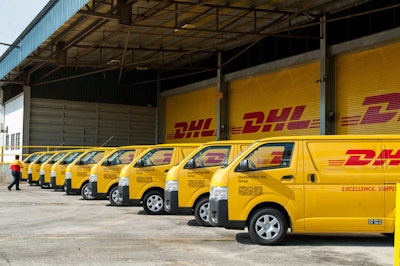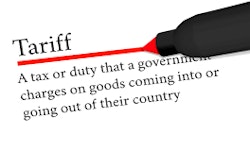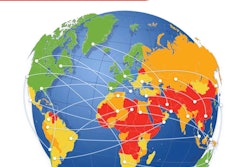
Deutsche Post DHL Group presented its new “Strategy 2025 - Delivering excellence in a digital world" to better focus on harnessing the sustained potential for profitable long-term growth contained in its core logistics businesses. Furthermore, DHL will be stepping up the digital transformation of the group by spending around EUR 2 billion on digitalization by 2025.
"Deutsche Post DHL Group has never been in better shape. We are convinced that future growth will come from a consistent focus on our profitable core logistics businesses, and digitalization will become the greatest lever," says Frank Appel, chief executive officer of Deutsche Post DHL Group.
With "Strategy 2020 - Focus.Connect.Grow." the group is well positioned for future growth.
"Experience shows that we are particularly successful whenever we use our resources and innovative capabilities to drive forward our profitable core logistics business," says Appel. "For this reason, we have gradually disengaged non-core activities over the last few years and have targeted investment into boosting the profitable long-term growth of our core businesses, such as the quality of our networks and the modernization of our intercontinental fleet for Express.”
The group confirmed four trends impacting logistics—globalization, e-commerce, digitalization and sustainability. "Strategy 2025" is the group's answer to these trends.
One of the main drivers for growth within each core will continue to be e-commerce. The divisions benefit from dynamic growth opportunities for their solutions along the entire logistics value chain, from inbound logistics to fulfillment, delivery and returns.
In addition, Deutsche Post DHL Group sees systematic digitalization throughout its businesses as a lever for achieving significant progress. Until 2025, the group will be spending roughly EUR 2 billion on initiatives designed to enhance customer and employee experience as well as improve operational excellence.
Deutsche Post DHL Group will also be comprehensively modernizing its IT systems, integrating new technologies, offering employees targeted advanced training and steadily improving its services, processes and standards between now and 2025. Efficiency will be improved by greater automation and improved transaction processes, for example, through warehouse automation and robotics programs. Data analytics will be widely applied to foster routing optimization through advanced algorithms, operational volume prediction and optimized resource planning.
"Moving forward, we will bundle our technological capabilities as a group in global Centers of Excellence. Here we will centrally develop key technologies like Internet of Things (IoT), and then provide them to our divisions. This way we can leverage the strength of our group to push forward our digitalization,” Appel says.



















